How we’re rewilding: Limbi Blessing Tata, Ecological Balance
Conservationist Limbi Blessing Tata had an “overambitious goal” — to rewild five water catchments in her region in Cameroon. With two Miyawaki forests already planted and a third in fundraising mode, you could say she’s halfway there.
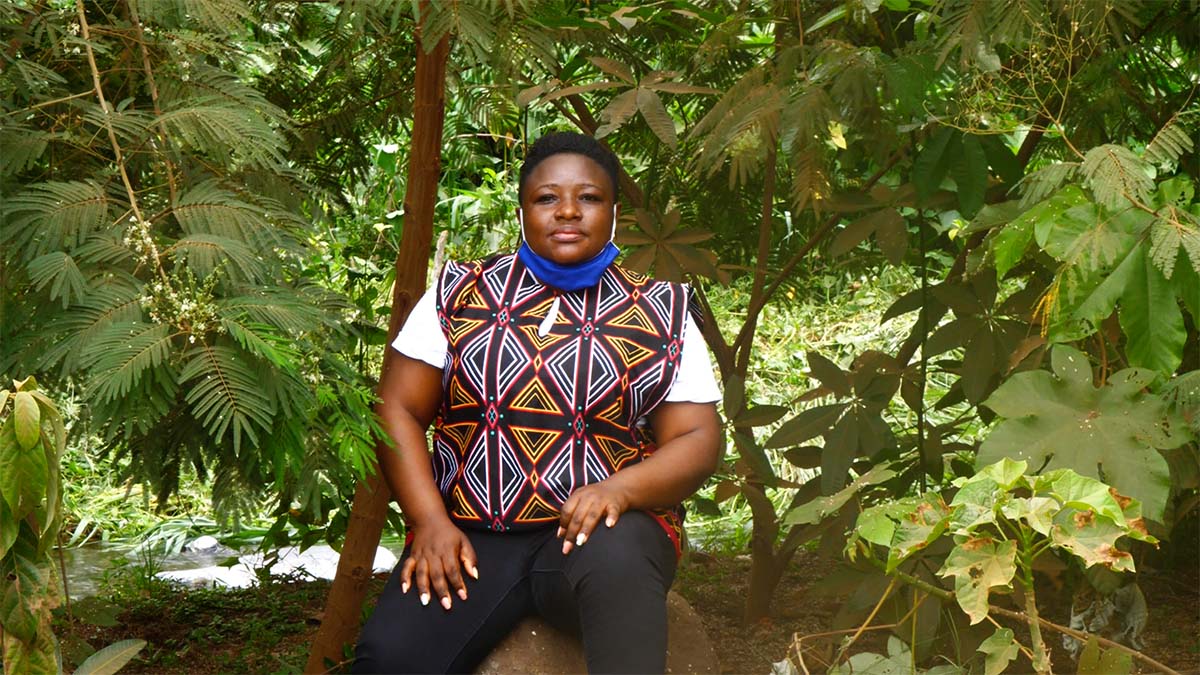
Conservationist and botanist Limbi Blessing Tata started her career doing “conservation for the sake of nature” in communities and protected areas in the Mount Cameroon forest landscape. But she noticed that despite these efforts – and despite her country of Cameroon being signatory to various conservation treaties – the forests continued to decline, and the people around them were becoming steadily poorer.
So in 2016, she struck out on her own to launch environmental NGO Ecological Balance. Her mission? To demonstrate that conservation and development should not be mutually exclusive, and that people can build livelihoods from the forest without destroying it.
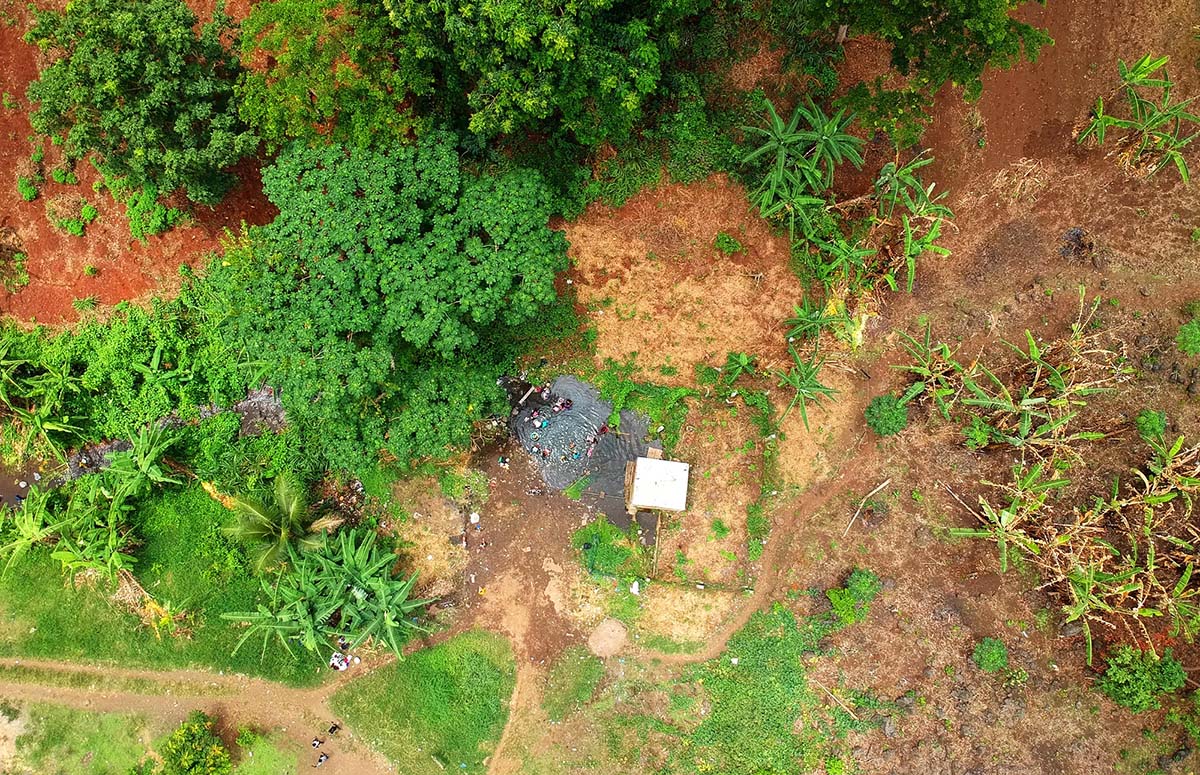
Based in the southwestern city of Buea, Ecological Balance runs a number of programs covering education and entrepreneurship training as well as forest conservation and replanting, the latter in partnership with Sugi, a Europe-based organization and platform that creates funding and networking opportunities for rewilding projects around the world.
Here, Limbi shares her inspiration, her projects – and her dreams for the future.
“I'm from a forest-dependent community. We depend on the forest for water, we depend on it for farms, we depend on it for spices, for medicine. If you are sick, they rush you to the forest to get herbs and cook for you. So practically, our only asset is the forest.
One of the ills of Cameroonian society is that girls are not given the same opportunity to education. My case was quite special; I happen to have been an only child. And so my parents didn't get the luxury of choosing between a male or a female going beyond basic education. And because of that, they were forced, kind of, to send me to secondary school. And I had a lot of scholarships, and then I ended up with a postgraduate certificate. But then I noticed that most of the girls in my community had to do all sorts of things. I met girls, some of them as young as 11. They were working, doing all sorts of domestic work. And their main aim was to raise money to see themselves through secondary school. And that really hit me. It was the turning point of my life – it was an emotional day. And I said, well, what can I do, in short, so that we still keep our asset, which is the forest, our ancestry, but then we are able to make some money from it, enough to be able to send girls to school too, so parents don’t always have to choose?
So in 2016, I took a risk – the risk of my life. I resigned from my job and I started Ecological Balance. The aim is to strike a balance between conservation and livelihoods. At the back of my mind, I am hoping that mothers especially will be able to generate income from non-timber forest products to the level that they don't have to make that choice – choose between him going to school or her going to school.
It was a struggle, I tell you. It's a struggle. The number of times I have wept in my room in my bed alone and regretted that decision. It was hard, to tell you the least. First of all, to get funding – the competition is fierce. I was there, no background, no network, with people not seemingly understanding where I'm coming from.
But then in 2018 I went to Kanthari, an institute in India that trains people who want to go back to their communities and make positive social change. I was there for eight months. I was trained on how to run an organization, public speaking, how to communicate properly, how to write grant proposals, get funding and all of that. Before I came back, I met Shubhendu Sharma. And that's when I first heard about the Miyawaki method. I watched his TED Talk and, man, it was interesting.
I remember going through that discussion, and I knew exactly what I wanted to do. I was dreaming, they have completely cut down forests here – I want to replant.
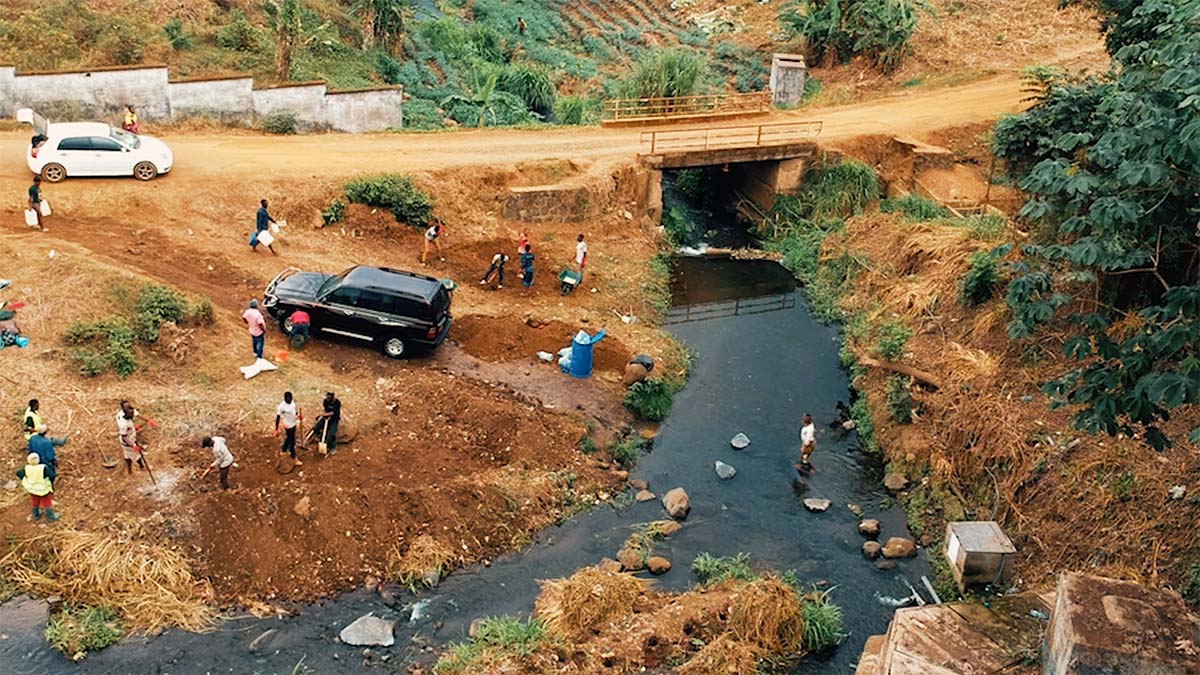
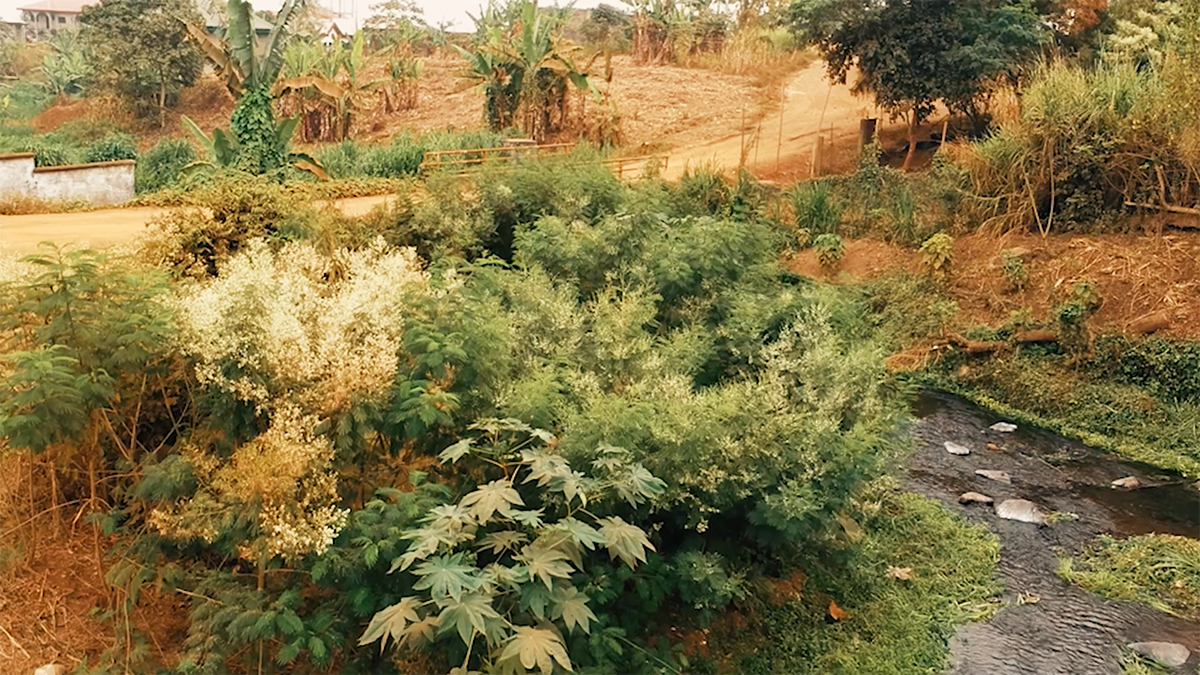
When I was leaving Buea, we had a water crisis. Averagely, a neighbourhood could get water on two days per week. But when I came back, you did not have water for a month running. And the people had resorted to wells, to boreholes, and they were everywhere. It is okay if you are in a neighbourhood that has a rich guy who is kind, so he has a borehole and he gives water out sometimes. But over 70 percent of the people buy water. We're on the foot of Mount Cameroon, which is the biggest watershed in central West Africa, and we are buying water. It's terrible. We have streams around, but they have been highly polluted.
It's like, okay, the water table is going down. And we keep going down to get the water. We are not thinking of what do we do to reverse this. And so I came up with this crazy, ambitious – sometimes I think it's overambitious – dream of trying to refarm the five main water catchments in Buea.
Typically what happens here is the further you go away from the source, the more polluted water becomes. So that point where the spring is coming out of the earth we call the catchment. Most of these catchments have water storage tanks that have been built to store and distribute water. In some neighbourhoods they have been able to pipe it to their homes, in others they are unable because of financial constraints.
Buea was forest in the ’80s. And there was a lot of water everywhere. So what we are doing is we are trying to replant forests around the sources of water. It's Eco Balance and the community together doing all of this. And our partner Sugi and their app – I’m so grateful to them.
Our first forest was planted in November 2019. It was a small forest of around 600 trees. And our second was planted in March 2020. So both of them are over one year old and they are doing great.
We plant only native species. That's rule number one for Miyawaki forests. And then we try as much as possible to mimic natural forests. We are also challenging ourselves to get as many species as possible. The last one, we planted 20 species of trees.
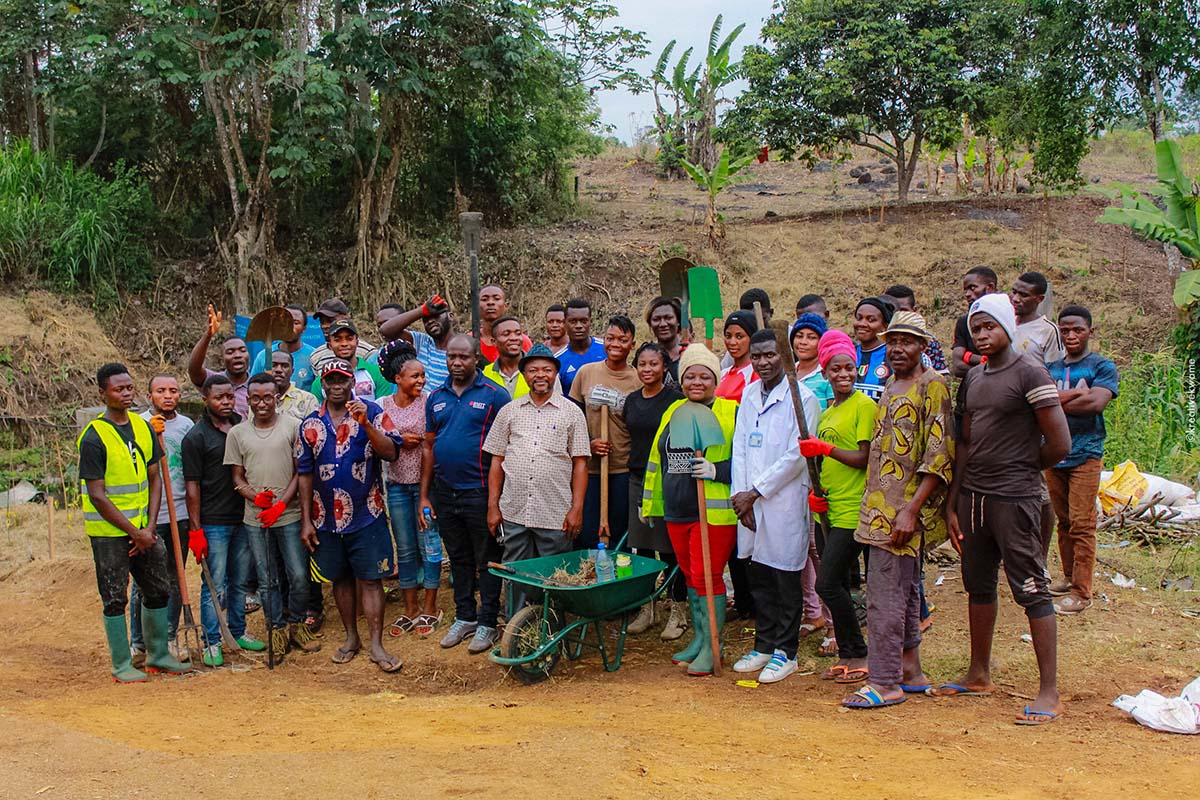
In Cameroon, every community has a special relationship with the forest. So we pay attention to that, and try to give them a forest that resembles what was there ancestrally, and we take into consideration the culture and the needs of the people too.
In all of our forests we plant Prunus africana. It's also called pygeum, and locally we call it canda stick. People use it in the treatment of malaria, for typhoid, fevers – it has a lot of local use in terms of medicinal value. But then, also, there are pharmaceutical companies that buy the bark to produce drugs for prostate cancer. Another example is Dacryodes edulis, we call it African plum. It produces fruits that are very edible, and people sell them a lot. You can also have oil from them and then the trees through the leaf are medicinal.
And we encourage people to plant trees that can be used as timber in the future. Because one of the things is that people are getting too much into natural forests to cut down the timber. So we try to balance, to look at the trees that are good for the catchment, to look at the trees that are useful to the people around and to also look at trees that people can harvest the parts of them to get money from in the future.
One of the biggest issues we have in Cameroon is that forests are valued only because of how much somebody can produce based on the quantity and quality of timber. But we are saying that it's not true. Forests are also valuable because they produce non-timber products. I know at least 200 spices that come directly from the forest. We have seeds that have up to 95 percent oil content, and this oil could be extracted and transformed. So what we do in a separate project is we train women to add value to and process these non-timber forest products in such a way that it gives them more money. And we also follow up to say that with this extra income you have the opportunity to get your daughters to school.
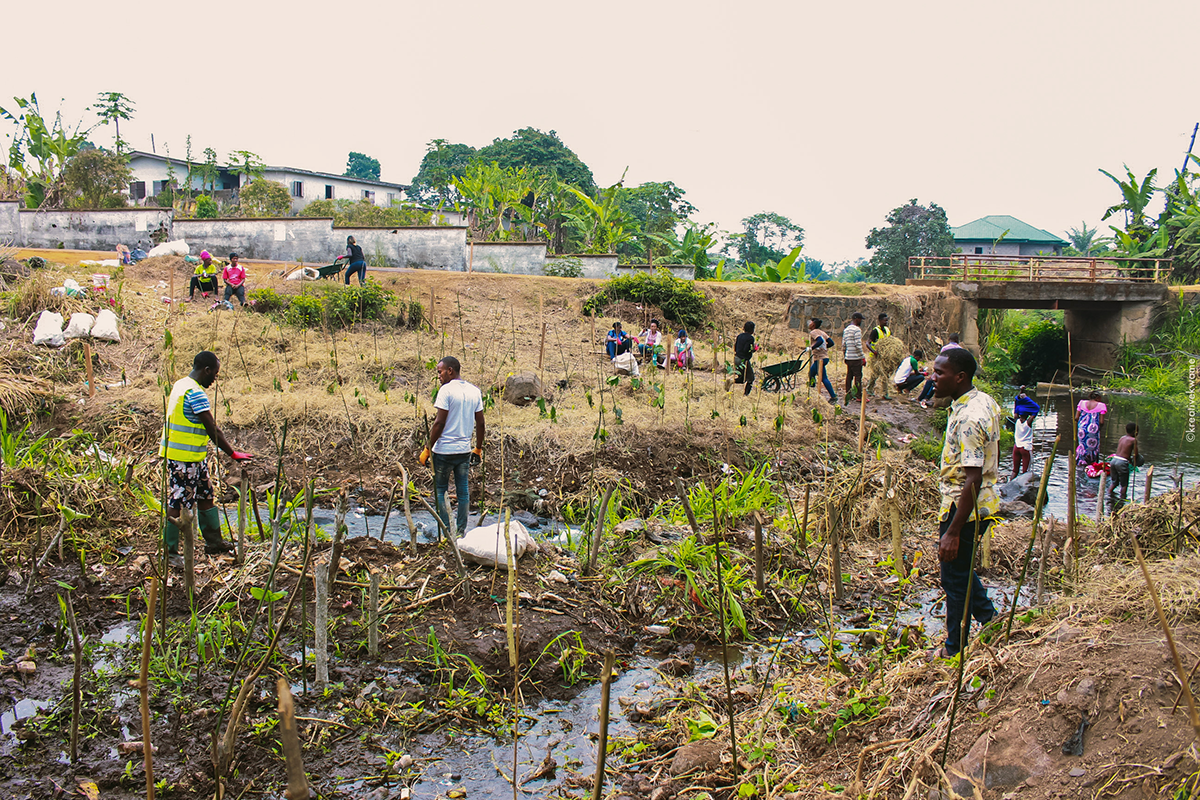
In my lifetime of doing conservation, I have planted over 2 million trees. But I have planted two forests that I will not forget in my lifetime. And even when I will have left this world, there will still be an impact that those forests created. It's true, [the Miyawaki method] is a bit time consuming. It requires much more time and much more energy, I agree. But I can tell you, it is worth it.
We have got a lot of feedback already from the communities. In Cameroon, our dry season is really, really harsh. The volume of water and the quality [in streams and rivers] reduces a lot. Temperatures go up to 45 degrees sometimes. But just a year later, an area has been reforested [and] you find people telling you that they did not realize that the dry season is over already. And they are saying it possibly could be these trees. I'm really amazed.
I was thinking, yes, there's going to be a difference. But I'm saying, okay, I'm going to be patient. Three years later we will do a follow-up and see what changes they think this project brought. But just one year in and I'm already getting comments, and we are now having communities coming to us to ask us to come and plant at their catchment. We plan to rewild five, and as it is, we might not be able to stop.
The mistake we make, I think, is that we treat the trees as individuals. We didn't really treat the forest as an ecosystem. The word “rewild” has to say that it's not about trees, it's about an ecosystem. Until it becomes an ecosystem, the work has not yet been done. That's what it means to me. When I say rewilding, I'm thinking of everything that goes into planting, and everything that goes into monitoring, everything that goes into nurturing, until it becomes a self-reliant ecosystem.
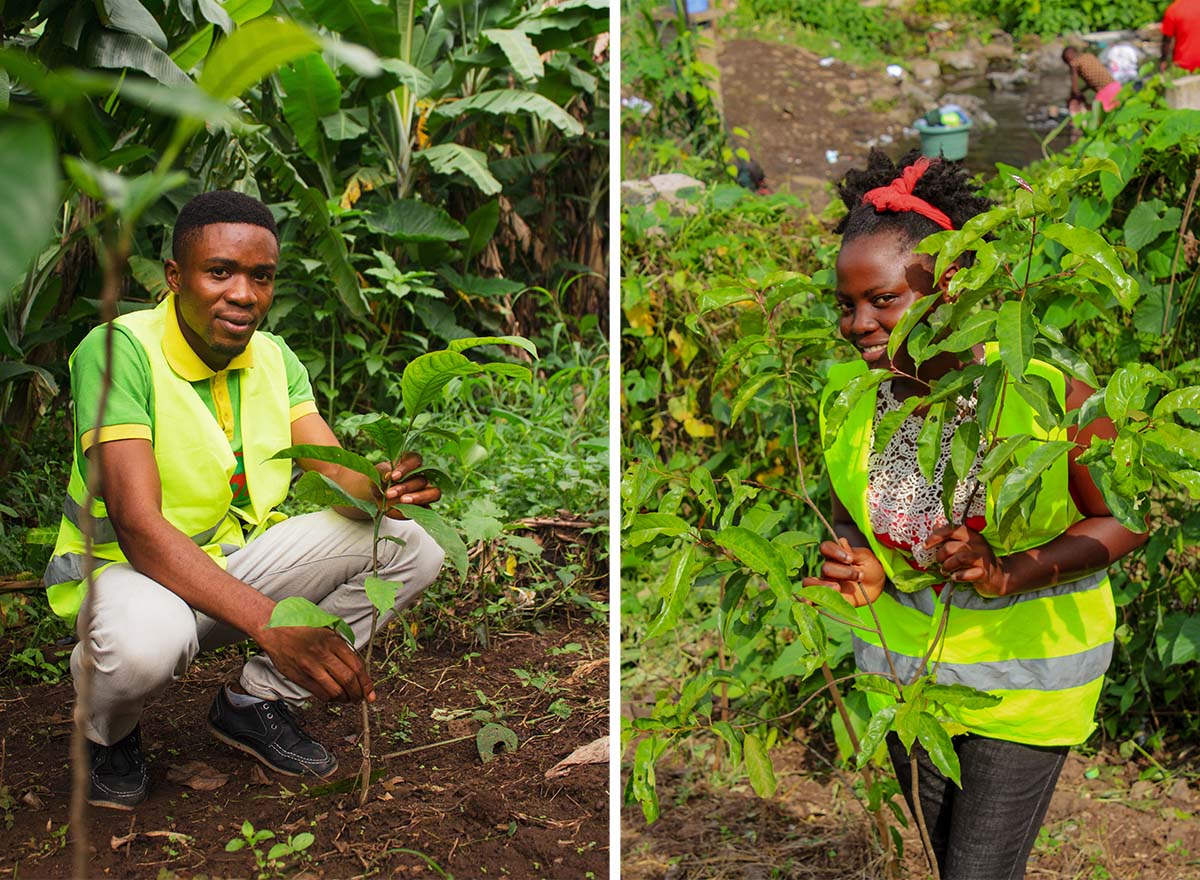
We use a lot of volunteers to plant trees. Since we are in a town that has the university and many tertiary institutions, we have a lot of youth, especially, who come in to help. I remember talking to them and saying, this water crisis, if we don't change it, nobody will come from anywhere to change it. The elderly people will die, and you will inherit the problem. The response is really positive. It's like, okay, this is our problem, and we have to solve it. And I'm really, really, really impressed.
It's really a trend. It's a revolution. I'm seeing a lot of light at the end of the tunnel. I'm glad that the youth are taking this seriously.
I just got a video from Elise and her team [at Sugi]. And it's awesome. We are sharing it on our platform. Because most of them who plant, they're not involved in monitoring and evaluation. We want to be able to show them that 12 months later, this is what you guys helped us do. And it's been really exciting. I've been having people asking me, ‘Oh, we need a party.’ It's been quite rewarding.”
This interview has been condensed and edited.
Main image: Ecologist Limbi Blessing Tata, founder of Ecological Balance. Photo by Ngwane E. Kwame for Sugi.



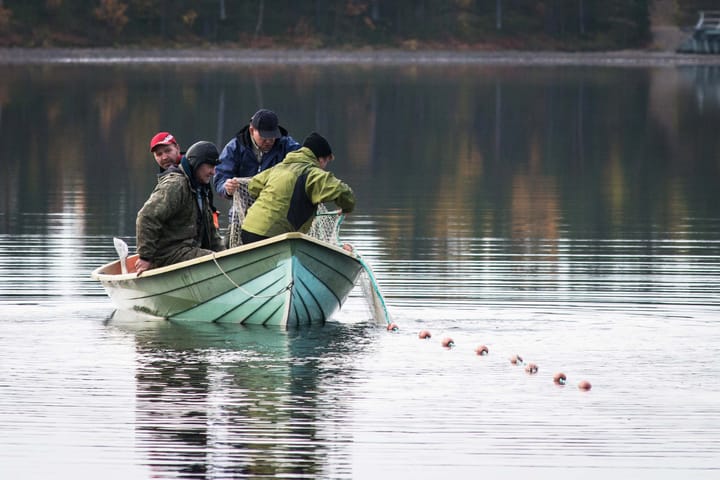
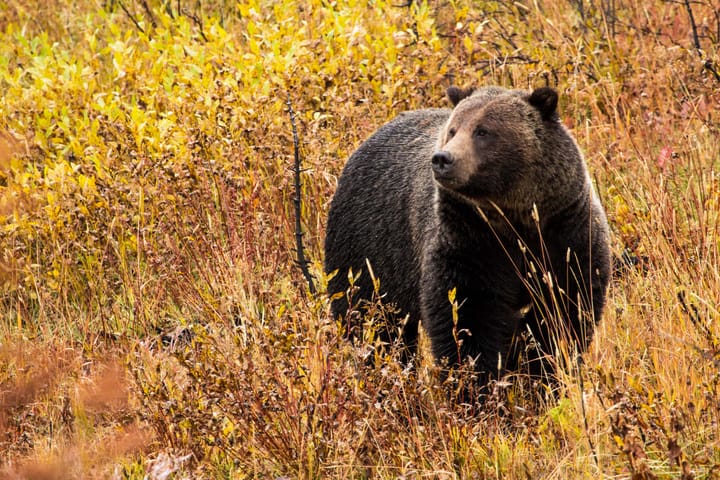

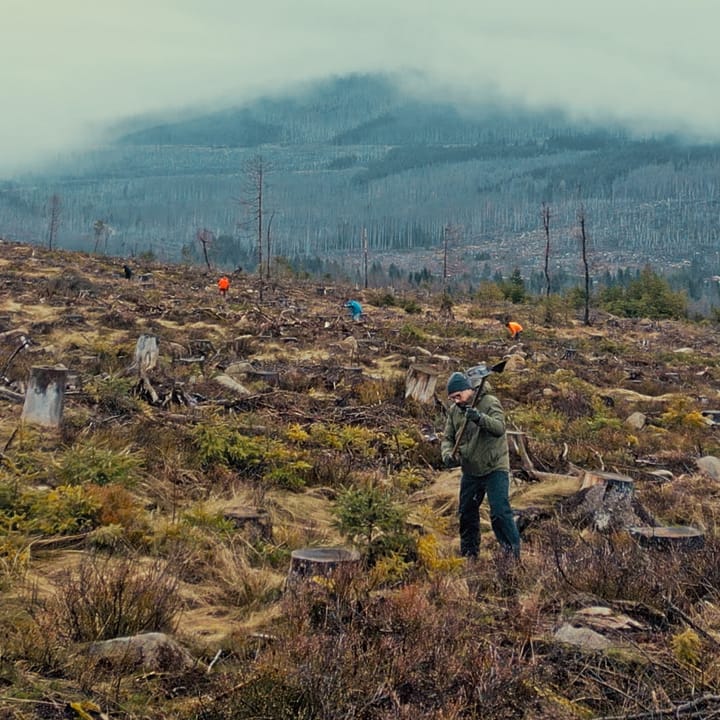
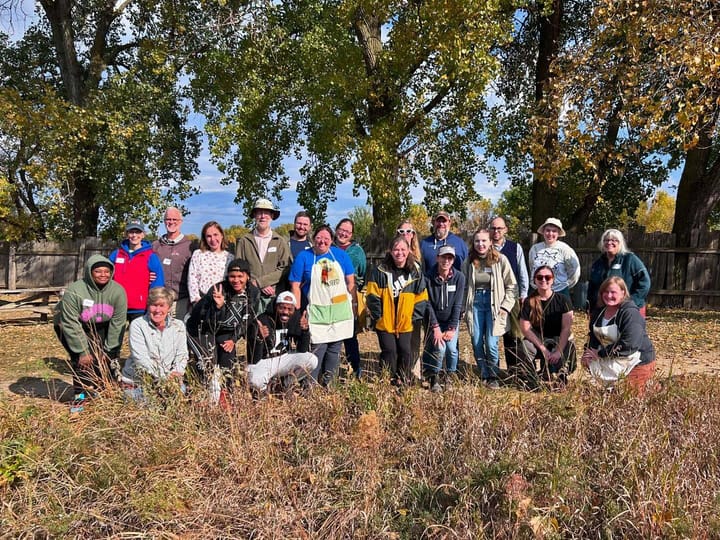
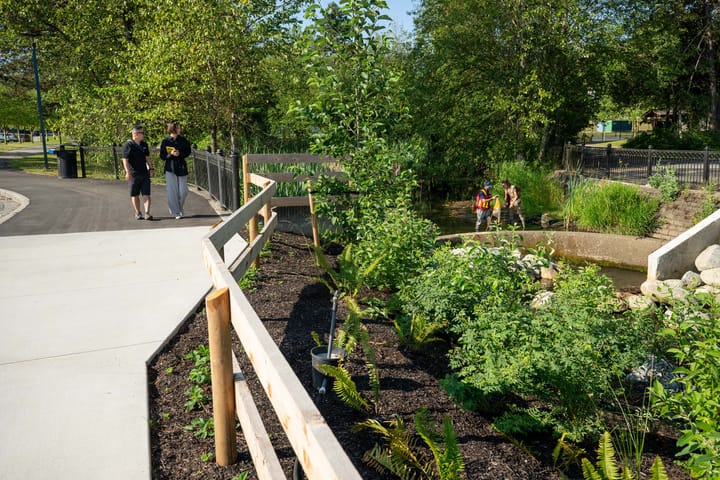
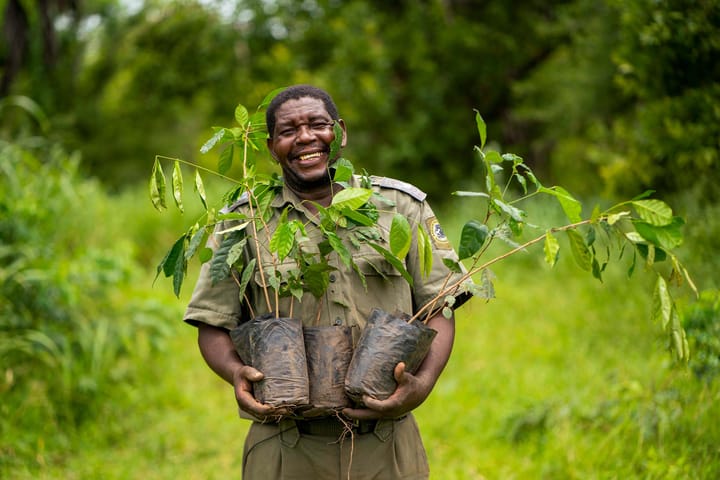
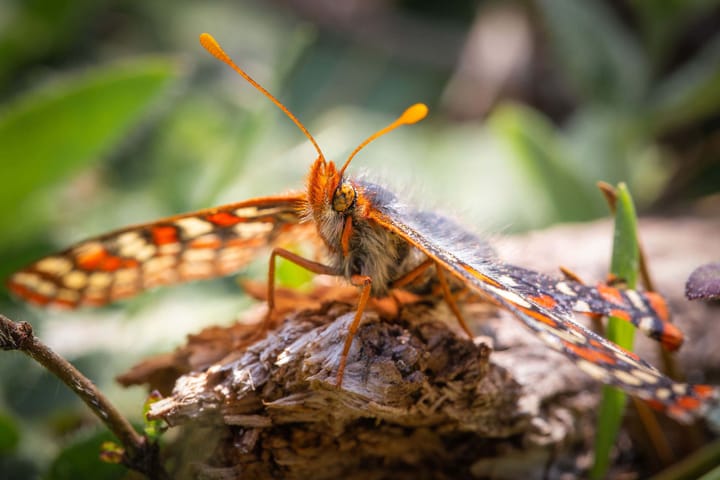
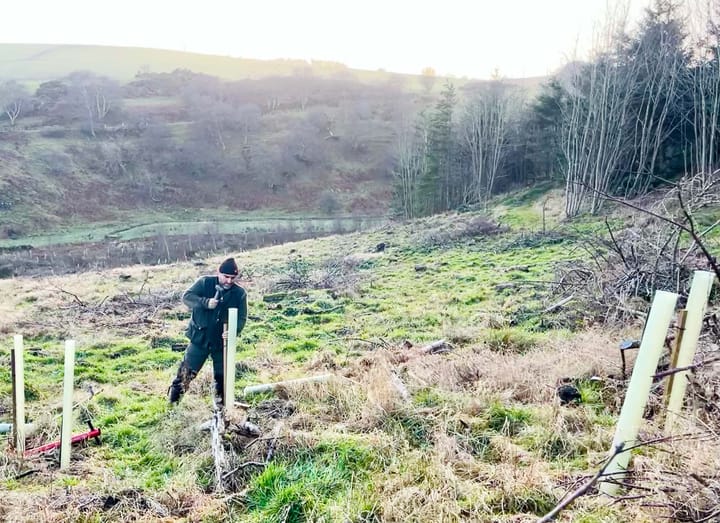
Comments ()